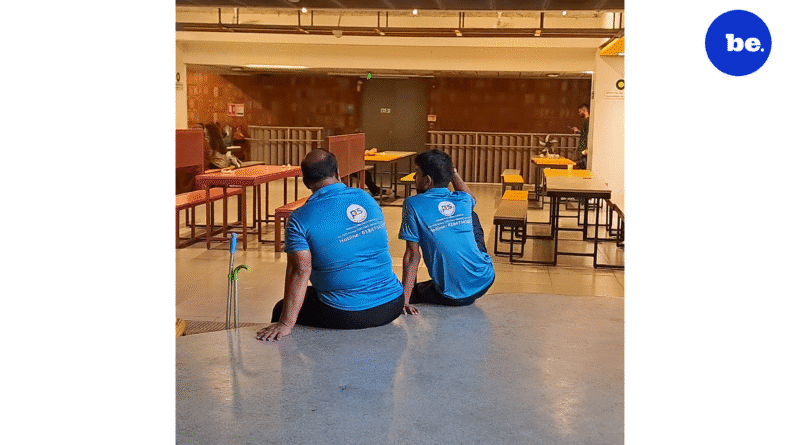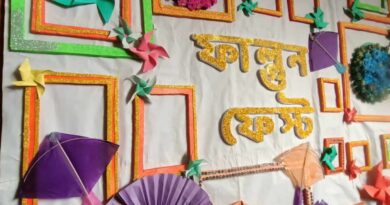Invisible people of BracU: Stories that go unnoticed
We spend hours at the sixth floor cafeteria, hanging out with friends, or rushing to meet deadlines. In between we sip cup after cup of coffee, or have a meal while reminiscing home. Do we ever stop to think where these trays and cups go after we are done? If you pay attention, you will see people working around the clock, broom and dust pan in hand, primed to clean up after us. They walk from one end of a block of the cafeteria to the other, sweeping dust and waste. They swoop in to tables, ask politely if we have finished, then collect the trays and cups. They blend in with the colors and architecture of the cafeteria, camouflaging themselves. They are the invisible people of Brac University.
Mofijur Islam is one such invisible person. His stint with BracU actually turned two years old this September. Among the cleaning staff of the sixth floor, Mofijur is by far the most veteran. He clocks in at 7am and leaves the premises at 10pm, for 7 days a week, 30 days of the month. Mofijur claims students are always nice to him, greeting and asking after his health. His wife also works at BracU, on the second floor. Both of their children are married, and Mofijur lives with his wife around Badda. One grievance Mofijur has is that students never offer him any Eid salami (he says this with a wink and a smile).
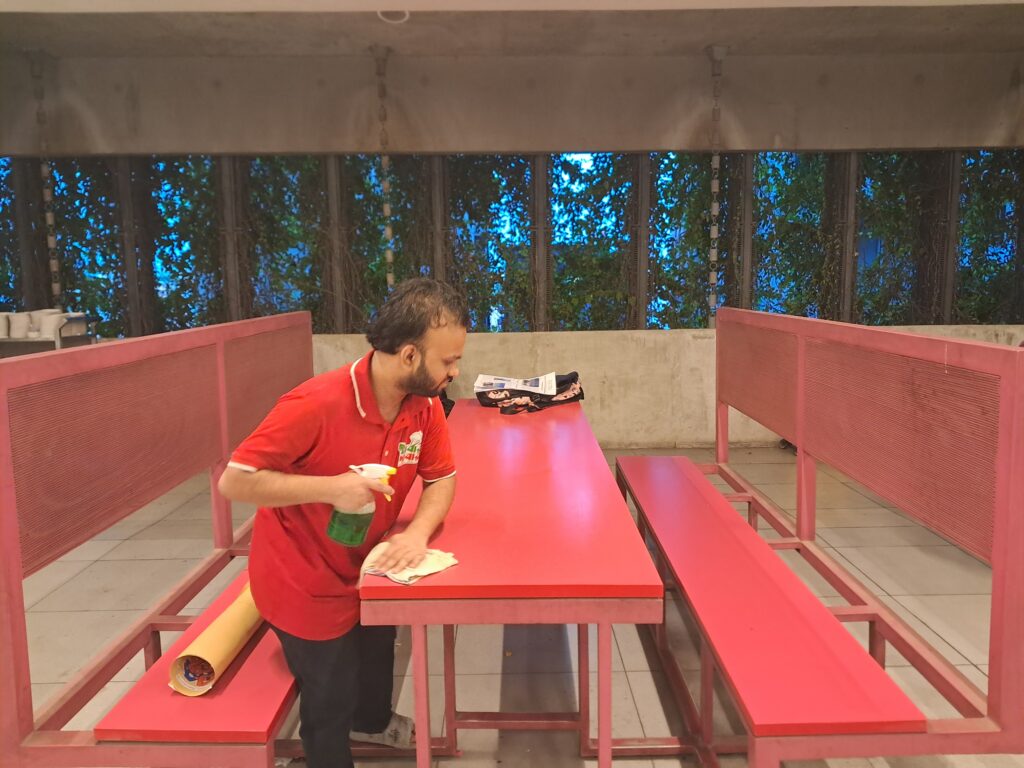
Picture Credit: Sajal Hossain Dhaly
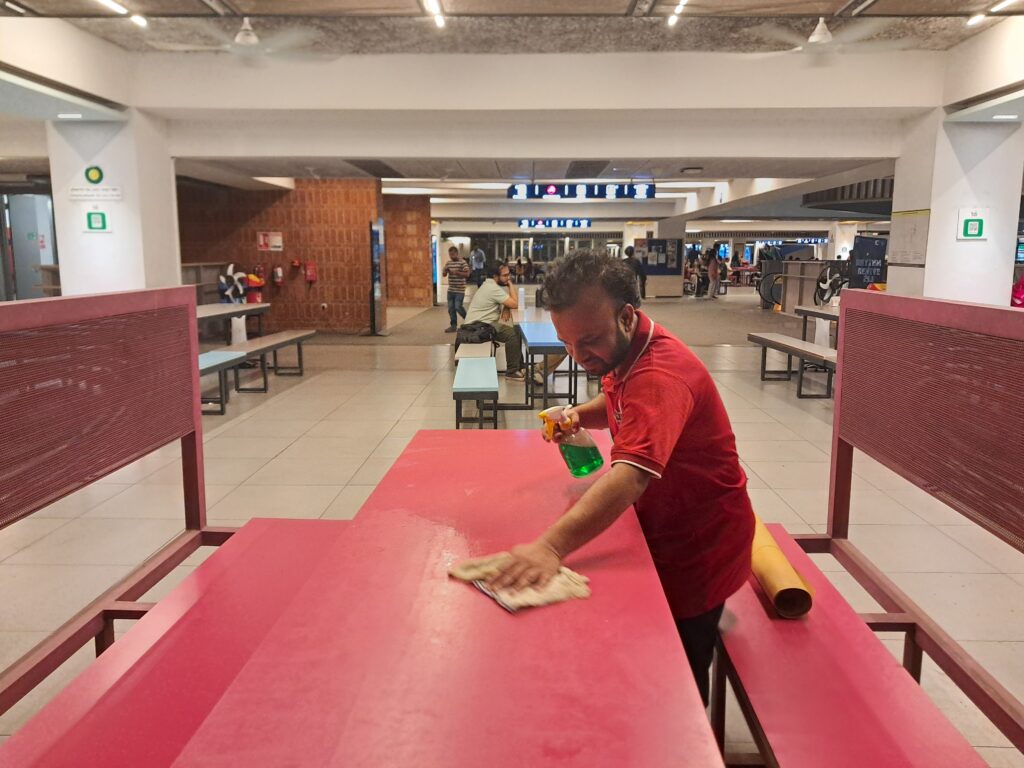
Mohammad Shahalom on the other hand lives alone in Dhaka. His wife and two children–both of whom go to Madrasa–live at his hometown Habiganj. Nevertheless, Shahalom tirelessly works the same long shifts. He sends everything he earns back home to his wife and children, and every night goes back to an empty home himself.
Mohammad Rony has been with Khabar Dabar for more than a year. He lives with his father here in Dhaka, while the rest of his family live back in Kishoreganj. This past July, Rony tied the knot with his fiance, who is also currently living in Kishoreganj. He visits them every weekend, as Khabar Dabar employees get Fridays off. Rony is an active student himself, pursuing a bachelor’s degree in accounting at a university back home. He clocks in at Khabar Dabar at 8am, leaves at 5, goes home and attends his online classes from 8 to 9. He hopes to graduate in two more years.
Rabeya Aktar is a long-standing member of Khabar Dabar Catering. Her job seems simple: she gathers plates and cups from tables, neatly stacks them on the trash counter placed in the corner of each block, from where she transfers them on a trolley to the cleaners in the kitchen. However, her battle is one that is inward. Rabeya is a single mother of two. Her son is in second grade, while her daughter is in the ninth. They live in Shariatpur with Rabeya’s own parents. She pays for all of their education and expenses. Every night Rabeya video calls her children before bed, and only visits them on semester breaks. She jokingly muses how her day offs coincide with the day offs for students.
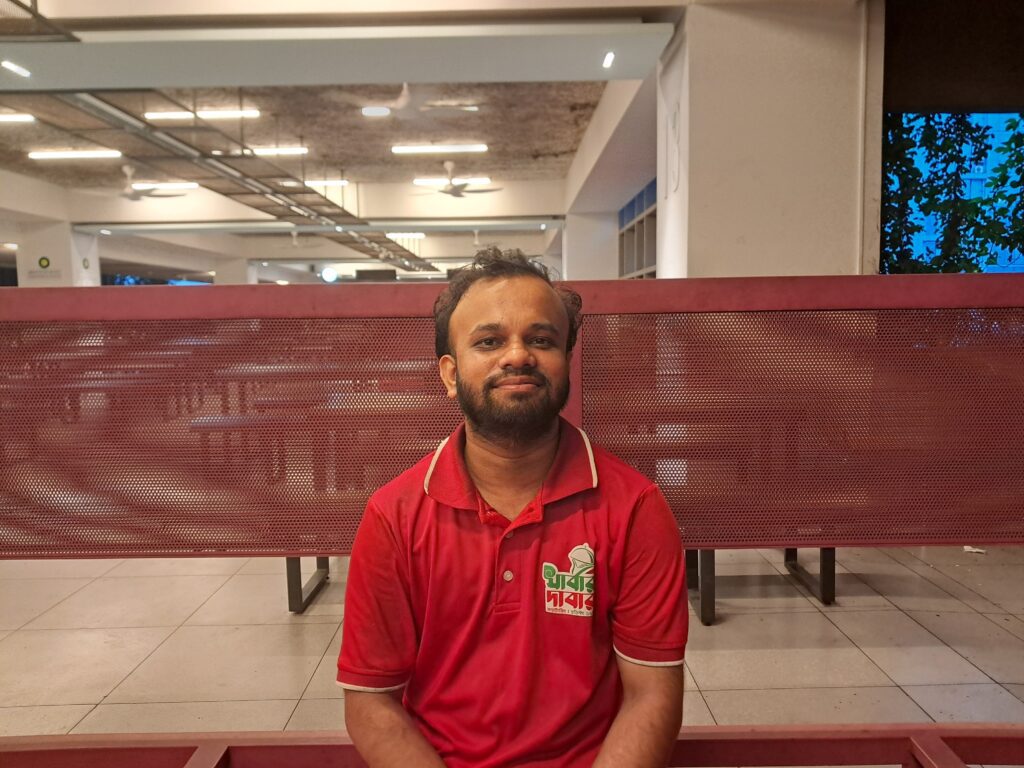
Picture Credit: Sajal Hossain Dhaly
These are only four of many invisible people present in our premises. They walk among us everyday and we are impervious to their presence. Sometimes it is easy to forget that everyone around us carries their own battle, their own little worlds within themselves, that remain invisible to us. Only asking someone how their day is going may unravel centuries’ worth of stories.

